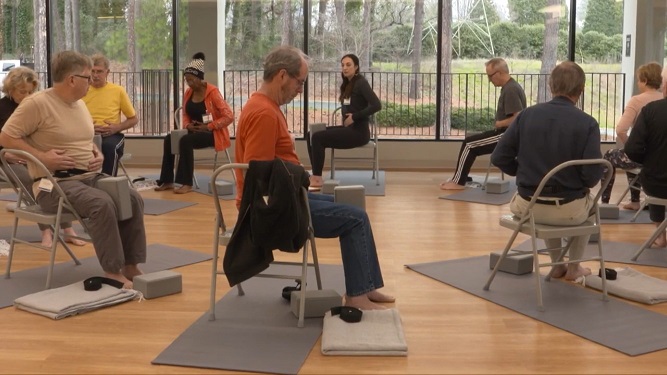

Today we’d like to introduce you to Megan Nare.
Hi Megan, we’re thrilled to have a chance to learn your story today. So, before we get into specifics, maybe you can briefly walk us through how you got to where you are today?
I am an inquisitive reader, artist, researcher, and practitioner who teaches yoga and mindfulness practices for a living. I have a passion for teaching accessible chair yoga to seniors and working with neurodiverse populations and memory loss care. I have spent the past few years as a research yoga instructor for a study at Emory’s Brain Health Center that enrolls participants and their care partners in a lifestyle program for an entire year to see what non-pharmaceutical interventions are helpful for those with cognitive impairments.
My work has taken on new meaning this year, especially in a post-pandemic world. My grandfather passed away one year ago after heroically battling the debilitating effects of Alzheimer’s for almost ten years, and this year my father went through a Parkinson’s and dementia early onset diagnosis at 62. My siblings and I have also transitioned into the role of a care partners. Memory loss is a painful challenge for any family, and not enough people are talking about it. Dementia can be an isolating experience, not just for the individual but for the entire family unit as roles reverse.
I am interested in what it takes to be tender and to keep my heart open when it wants to close. My practices these days are about making myself hospitable to compassion while carving out new ways of imagining the world around me. My intention is to support and encourage others by sharing simple yoga and mindfulness practices as practical tools for working with grief and life after a big diagnosis or life change.
Right now I am in the early stages of concepting a yoga studio that shares adaptable practices for all bodies. I want to see more yoga studios with chair yoga classes, yoga for seniors, adaptive yoga for those experiencing life with a disability, yoga for addiction recovery, etc. The future of yoga is creating spaces where everyone is welcome and feels at home, not just able-bodied folks.
We all face challenges, but looking back would you describe it as a relatively smooth road?
The past few years have presented a lot of challenges in the yoga community. Many of the most successful studios and independent fitness centers in the Atlanta area did not make it through the pandemic. Extracurricular activities that offer the community resources like movement and social time to older adults at community centers and adult day care facilities closed and left many families feeling hopeless when it comes to memory care.
Teaching online was something I was always interested in to make yoga practice more accessible. COVID hit in Spring of 2020 and all the studios and fitness facilities shut down. Some business were able to adapt and get creative to keep revenue coming, others were not. My home studio quickly made the decision to purchase all the recording equipment, microphones, and lighting we needed to go virtual. We spent a week watching YouTube videos and reading tutorials to figure out how to stream live classes and record content in HD to post to an online library. We were on a huge learning curve.
I can look back two years later and am amazed we hosted an entire 300 hour advanced certification course via Zoom, I have edited and uploaded over 200 videos in high-def onto our platform and offer all our classes in a hybrid format with both in-person (vaccinated and masked) and live streaming options to join.
I work for a program called the Cognitive Empowerment Program (CEP) at Emory University’s Brain Health Center teaching chair yoga for a research study involving lifestyle interventions for those experiencing life after a diagnosis of Mild Cognitive Impairment (MCI). Our population is primarily older adults and their care partners who are experiencing life with various memory challenges.
CEP also made a huge pivot to move all programming into the virtual setting. We took three weeks to move every class and every participant to the iPads. It was a big lift, not just from the participants of our program to learn to use technology efficiently, but also from our entire staff. I wasn’t sure how my program, or any of our classes for that matter, would transition to the virtual setting. Yoga, Tai Chi, fitness classes, nutrition, counseling, functional independence and LiveWell sessions, cognitive training – everything had to be moved to Zoom.
Everything was trial and error in the beginning. There was a moment in time I thought I would never stop hearing “You’re on mute!” But our community members caught on so quickly. By the end of the year together online, everyone in the program was a Zoom expert. Learning to use the iPads connected them to their friends and family members during a time of intense quarantine.
I facilitated the online programming for CEP during our first year because I felt empowered from my experience at the studio with technology and livestreaming. I broadcast our physical activity classes like a virtual fitness center where all our members login and greet each other, and once the class begins, all participants except the instructor go on mute until the end of the session. For more interactive classes that required group discussion, I used breakout rooms and small groups to facilitate small, individual cohort sessions.
We went back online for a month in January and many of the CEP participants said they could hear better and connect deeper over Zoom compared to the in-person classes with the barrier of the masks and social distancing for safety. Emory’s Brain Health Center and Cognitive Empowerment Program now have weekly virtual programming that offers CEP courses and education for free to anyone from the comfort of their home.
The past two years have been a challenge in the yoga world, but technology has enabled us to share the joy of practice with a broader population in a way that is more accessible.
Appreciate you sharing that. What else should we know about what you do?
I am an advanced yoga teacher. I facilitate classes in a studio setting and also in more therapeutic settings with an emphasis on accessible chair practices.
Radical acceptance is at the core of what has helped me to learn compassion; it has led me down a path of teaching adaptive chair yoga where participants have an option to sit or stand and lots of choices about what feels right for them today. My interest in teaching now is supporting effective and intentional communities though sharing accessible and adaptive yogic practices and philosophies.
I believe it is everyone’s right to find and grow joy, acceptance, belonging, and tenderness; and I think yoga and community can help if you are on a journey that is looking for those things. That belief has led me to teaching adaptive chair yoga and working in communities of people experiencing life with Mild Cognitive Impairment, Cerebral Palsy, Parkinson’s disease, among others.
What do you like and dislike about the city?
I have been in Atlanta for the past 15 years. I moved here when I was 19 to attend college at Georgia State University and the city has gone through a lot of change since then. I grew up in a small, rural town and Atlanta has given me access to explore so many interests, foods and connect with others on my yoga journey.
The city is changing and owning a home in town is becoming more and more expensive and unobtainable. In my neighborhood of Kirkwood over the past few years, we have been overflowed with construction for high-rise condos that start out at $600,000. Investors have bought up the neighborhoods and have a control on access to cash to make the highest, quickest cash bids in the market.
It’s pushing small business owners out due to rising rent costs and making it increasingly harder for local studios to stay in business. Yoga shouldn’t be about profit or making money, but it is hard not to think about that in this market as studios and access to affordable classes becomes more and more scarce.
Pricing:
- Free chair yoga classes through CEP Community Live on Tuesdays at 2:00 pm
- Private group and individual sessions begin at $100/class
Contact Info:
- Email: megan@tenderheartyoga.com
- Website: https://www.tenderheartyoga.com
- Instagram: @tenderheartyoga
- Youtube: https://www.youtube.com/watch?v=gATlH1QVg5w
- Other: https://vimeo.com/showcase/8605252
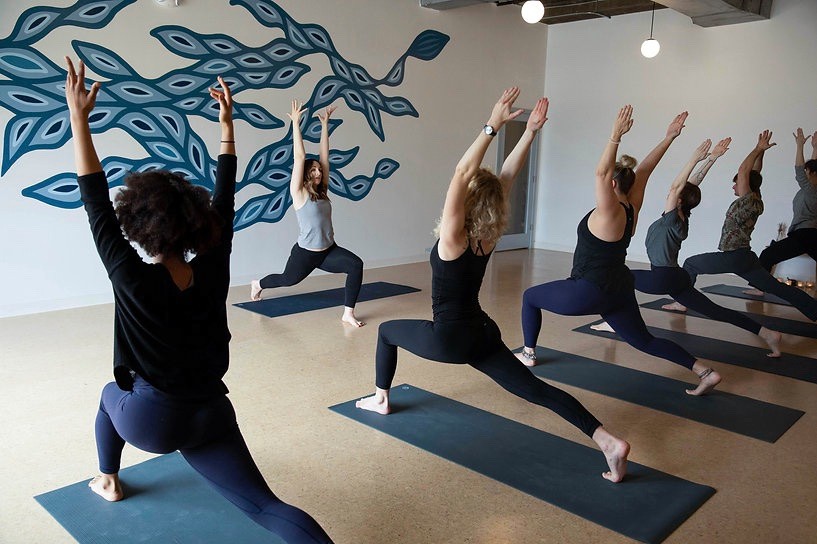
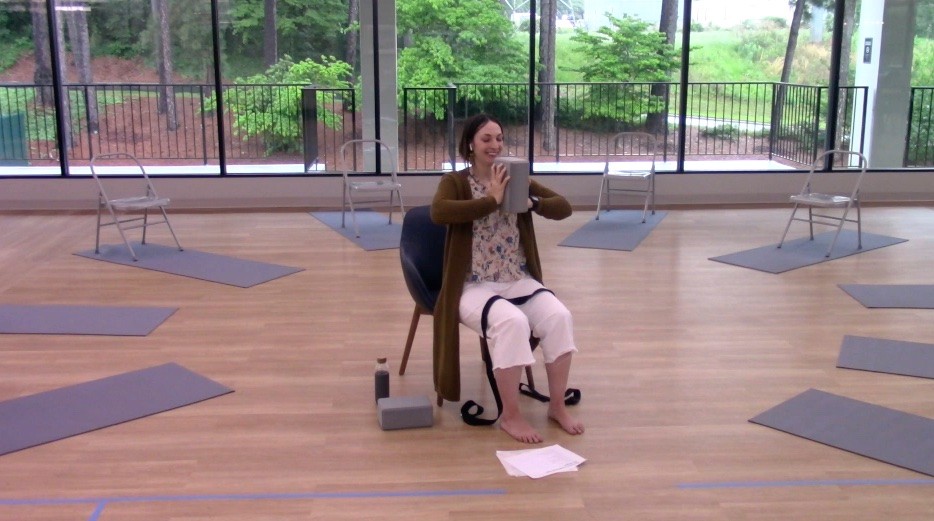
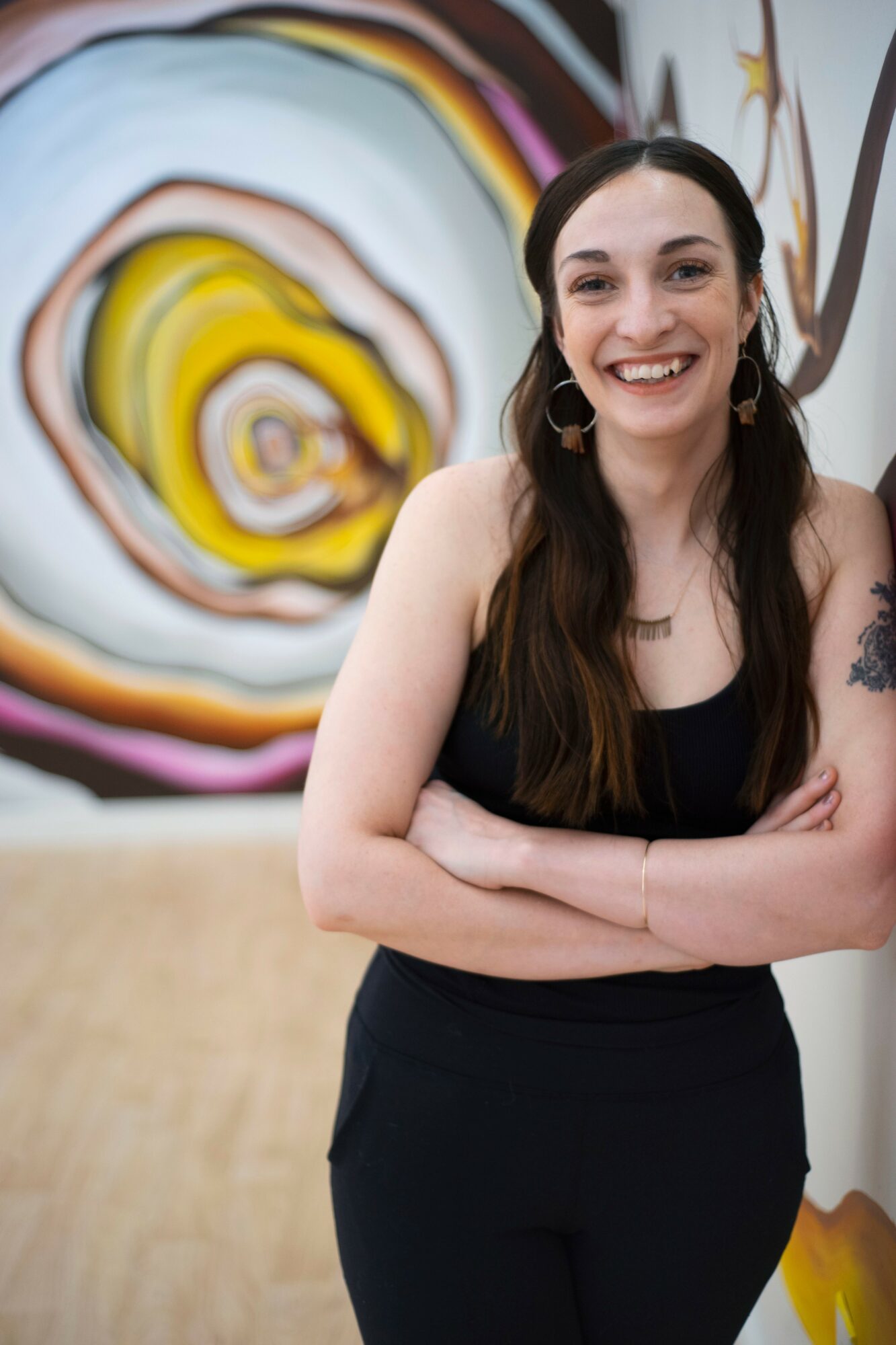
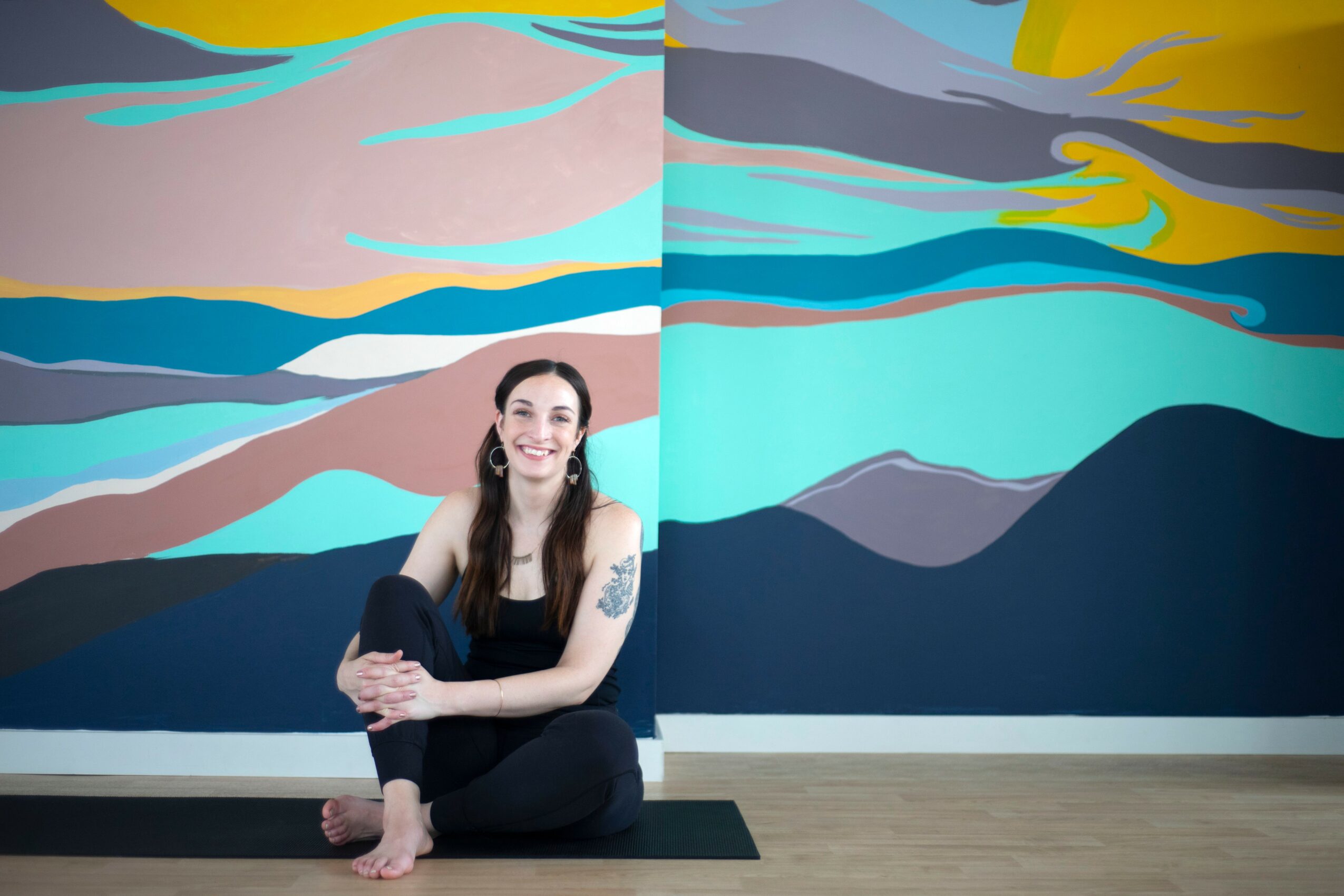
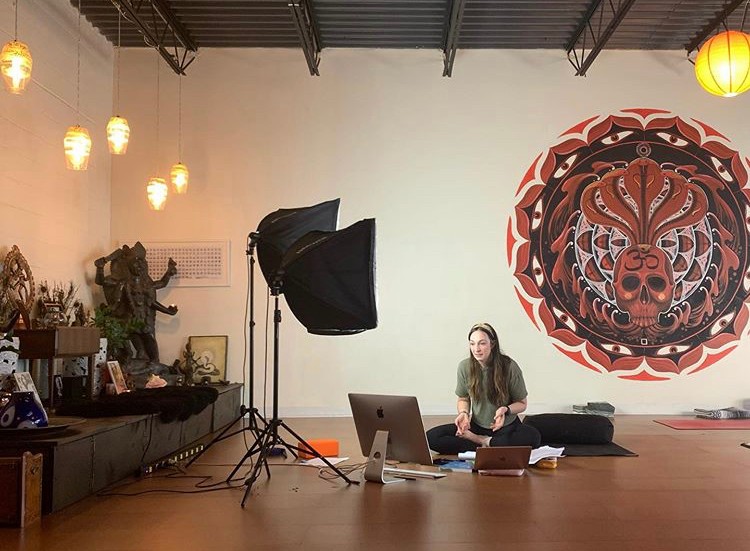
Image Credits:
Photos by Kelly Marie Photography and Jamie Hooper













